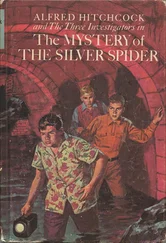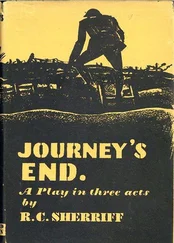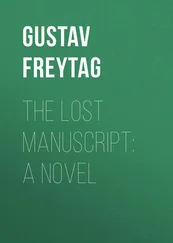Роберт Шеррифф - The Hopkins Manuscript
Здесь есть возможность читать онлайн «Роберт Шеррифф - The Hopkins Manuscript» весь текст электронной книги совершенно бесплатно (целиком полную версию без сокращений). В некоторых случаях можно слушать аудио, скачать через торрент в формате fb2 и присутствует краткое содержание. Год выпуска: 2018, ISBN: 2018, Издательство: Penguin Books, Жанр: sf_postapocalyptic, humor_satire, на английском языке. Описание произведения, (предисловие) а так же отзывы посетителей доступны на портале библиотеки ЛибКат.
- Название:The Hopkins Manuscript
- Автор:
- Издательство:Penguin Books
- Жанр:
- Год:2018
- ISBN:978-0-241-34908-3
- Рейтинг книги:4 / 5. Голосов: 1
-
Избранное:Добавить в избранное
- Отзывы:
-
Ваша оценка:
- 80
- 1
- 2
- 3
- 4
- 5
The Hopkins Manuscript: краткое содержание, описание и аннотация
Предлагаем к чтению аннотацию, описание, краткое содержание или предисловие (зависит от того, что написал сам автор книги «The Hopkins Manuscript»). Если вы не нашли необходимую информацию о книге — напишите в комментариях, мы постараемся отыскать её.
The Hopkins Manuscript — читать онлайн бесплатно полную книгу (весь текст) целиком
Ниже представлен текст книги, разбитый по страницам. Система сохранения места последней прочитанной страницы, позволяет с удобством читать онлайн бесплатно книгу «The Hopkins Manuscript», без необходимости каждый раз заново искать на чём Вы остановились. Поставьте закладку, и сможете в любой момент перейти на страницу, на которой закончили чтение.
Интервал:
Закладка:
I was so excited that I kept missing the pedals of my bicycle as I rode out to his farm, but I returned in triumph with a cockerel!
I had to pay the atrocious price of two red vouchers for it, but cockerels were naturally worth their weight in gold. It was a common-looking little bird, with mean little eyes and a conceited strut that betrayed its obscure descent. It was utterly unworthy of Broodie, and I felt ashamed to introduce it to my fastidious, blue-blooded old hen. Broodie looked him up and down with obvious surprise and distaste. She had never met a cockerel of this type before, and at first declined, very naturally, to make the slightest response to his advances. But after a night’s reflection she realised her duties towards the shattered fortunes of the poultry world. She submitted with patient but thinly disguised revulsion to her ordeal, and when at last she presented me with nine mongrel but healthy little chicks I was very pleased at the determination with which she prevented her vulgar little spouse from taking any part in their upbringing.
It was during one of my visits to Mulcaster that the mystery of the Beadle dugout was suddenly and unexpectedly revealed to me.
I had almost given up hope of solving the baffling problem of that solitary open door – the waterlogged dugout and the uncanny disappearance of the Vicar, Sapper Evans, Dr Hax and all the villagers.
In vain I had enquired of the people in Mulcaster and scanned the streets for a familiar Beadle face: in vain we had searched the downs for some clue to help us, and then one evening, as I was returning from Mulcaster Market to join Pat and Robin for our journey home, a little woman passed me with an armful of firewood.
Some of the faggots slipped from her grasp and fell into the road. I picked them up for her, placed them in her arms and found myself looking into the wizened face of a Beadle villager!
The old lady stared at me as if I were a ghost. It was Mrs Chaplin, wife of a labourer who had lived in a cottage upon the Widgeley road.
‘Mr Hopkins! – ‘owever did you get out?’
‘Out of what?’ I asked.
‘The dugout,’ she replied with a shudder.
‘I didn’t go to it,’ I explained. ‘I stayed at home’ – and then in trembling fragments I drew from her the tragic story.
The fatal evening had begun quite well in the Beadle dugout. Directly the doors had been closed, Charlie Hurst and his Trio had begun a programme of popular music and the Vicar had organised a small whist drive for those who desired to play. At eight o’clock there had been a light supper of coffee and sandwiches, and as far as Mrs Chaplin could say, they had neither felt nor heard the hurricane raging above them upon the hillside. Towards nine o’clock, as they were arranging their blankets for the night’s rest, they had felt ‘a sort of shudder’: several coffee-cups had fallen over: one or two children had cried and Charlie had called out: ‘That was the moon, that was!’
‘The dugout seemed to dip down and come up again,’ explained Mrs Chaplin, ‘but when nothing else happened, we begun spreading our blankets.’
And so the people of Beadle had prepared for rest – unaware of the fatal wound in the structure above them. For it seems that the earthquake had brought a deep fracture to the chalky hillside: a fracture that had distorted the concrete beddings of two of the doorways and forced open wide cracks in the chalk surrounding them.
Some of the people were already asleep, and Mrs Chaplin herself was dozing when urgent cries of warning came from the men upon watch. The villagers had scrambled from their blankets to the nightmare of great streams of muddy water gushing down the steps of the two fractured entrances. The tidal wave was upon them.
Fiercely – desperately the men had worked under Sapper Evans – struggling to block the crevices with blankets and canvas sheets. But relentlessly the chalk had crumbled: one by one the men had been swept from the stairways by the increasing torrent. The mud upon the dugout floor was around their ankles – around their knees – it crept up to their thighs.
Then Sapper Evans had shown a last heroic resource. The third entrance to the dugout remained secure. To have opened it in an endeavour at escape through that awful flood would have been suicide, but the upper section of the stairway would form an airlock against the rising water.
Into this airlock the Sapper had forced the women and children – forty of them, huddled upon the fifteen steps with one man – Mrs Chaplin’s husband – who understood the mechanism of the door.
Mrs Chaplin had only the vaguest recollection of the horrifying hour that followed, and I do not blame her. They had watched the water creep to the roof of the dugout: listened to the last sounds beneath them which mercifully their own cries helped to drown.
Within half an hour the atmosphere upon the steps was unbearable, and rather than face certain death by suffocation her husband had unbolted and thrown open the door. In a dream they had seen the pallid sky and the turgid flood receding.
For a while they had lain upon the slimy hillside, powerless to move and powerless to think. The village lay far beneath the tidal wave, but as dawn came they saw the ruined church tower slowly creep to view.
Her husband had tried in vain to open the jammed doors in the hope of finding someone still alive, then he led his little party of survivors away across the downs and came at last to the ruined town of Widgeley.
They had found shelter with the survivors of the town and settled there to live. Mrs Chaplin had come to stay with a friend in Mulcaster but she did not think that any would have the courage to return again to Beadle.
I never told Pat and Robin of what I had learnt. They had almost given up the puzzle of the dugout and I saw no purpose in oppressing them with the thought of that tragic tomb so near at hand.
They found me very silent on our journey home that night: but even in my sadness I found pride in the memory of the gallant men of Beadle.
Autumn turned to winter. At one time I had dreaded the season of darkness, but it passed happily enough in Beadle Valley. A little petrol was now available and Robin doctored up the old Ford car for our journeys to Mulcaster. There was now a picture house that produced each Wednesday night a scratched old film of pre-cataclysm days, and it was strange to see those pictures of an age that now seemed so dead and far away. Every Saturday we stayed on after Market for the weekly Dance and Concert.
For my own part I should have been happy enough at home, but I encouraged every opportunity of going out for the sake of Pat and Robin.
With the beginnings of my new poultry farm the cup of my own contentment was filled, but I felt a growing concern towards those two loyal young partners of mine.
It was not natural for a boy and girl with the spirits of Pat and Robin to live in monotony and solitude. In the early days, throughout the spring and summer, gratitude for being alive and the need to work for one’s very life swept all thought of other things aside, but as the dark evenings came – as life was gradually eased from its first primitive strivings, I knew that a longing must often have come to Pat and Robin for the life and companionship of young people of their own age. It was impossible to sit, night after night, and talk of our daily doings. Sometimes we would read aloud or play cards and I devised several amusing but rather childish games with dice and racehorses cut from paper in order to break the monotony. But often our conversation after dinner would languish into gulfs of silence, and at last, one evening, I summoned the resolution to voice the thoughts that were oppressing me.
Pat was at work upon some new curtains from material we had bought in Mulcaster that week, and Robin was curled upon the sofa with a book of adventure.
Читать дальшеИнтервал:
Закладка:
Похожие книги на «The Hopkins Manuscript»
Представляем Вашему вниманию похожие книги на «The Hopkins Manuscript» списком для выбора. Мы отобрали схожую по названию и смыслу литературу в надежде предоставить читателям больше вариантов отыскать новые, интересные, ещё непрочитанные произведения.
Обсуждение, отзывы о книге «The Hopkins Manuscript» и просто собственные мнения читателей. Оставьте ваши комментарии, напишите, что Вы думаете о произведении, его смысле или главных героях. Укажите что конкретно понравилось, а что нет, и почему Вы так считаете.












